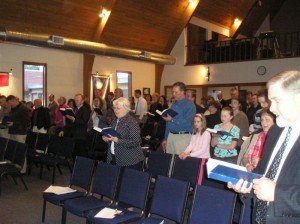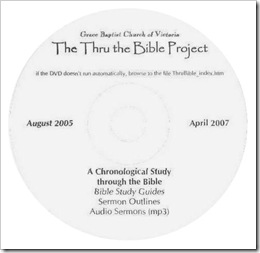Free Justifying Grace through a Particular Redemption
[Romans Series: (Rm 3.24)]
In this message we examine the incomparable value of God’s justifying those who believe by grace through the redemption, the one that is in Christ Jesus. What a glorious Saviour and what a glorious salvation!
The Creation of Man (1)
[Basic Theology series]
In this lesson we begin to look at the characteristics of the creation of man. We had a lot of discussion today and didn’t move very far in our outline, but we had a profitable time looking at the word today.
Walking in the Spirit
[Galatians Series: Gal 5.16-18]
We look at the contrast between two walks away from God (the walk of the flesh and the walk under the law) and contrast them with the walk towards God, the walk in the Spirit. We examine the concept of the walk of the Spirit from several Scriptural angles as we work through the end of the message.
~~~
Maranatha!
Don Johnson
Jer 33.3






Comments